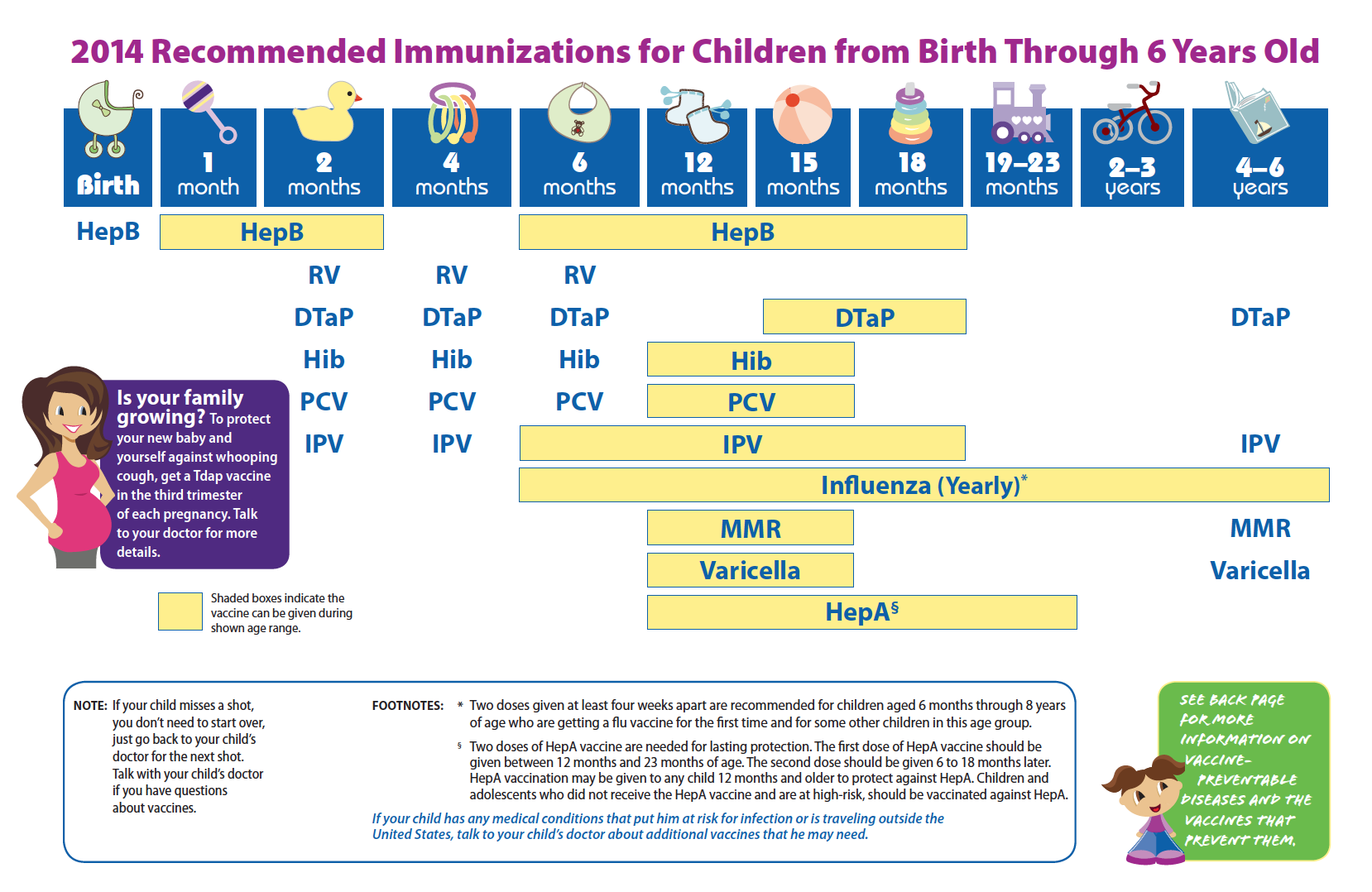Vaccinations are an essential part of keeping infants and children healthy and protected from serious diseases. Following a vaccination schedule recommended by healthcare professionals is crucial to ensuring optimal immunity and overall well-being.
Why Vaccinations are Important
Vaccinations play a vital role in preventing the spread of infectious diseases and protecting individuals from potentially life-threatening illnesses. By receiving vaccinations according to the recommended schedule, infants and children can build immunity to diseases such as measles, polio, hepatitis, and influenza.
Recommended Vaccination Schedule
The Centers for Disease Control and Prevention (CDC) has established a comprehensive vaccination schedule for infants and children. This schedule outlines the recommended vaccines and the age at which they should be administered. It is important for parents and caregivers to follow this schedule closely to ensure that their child is adequately protected.
Birth to 6 Months
During the first six months of life, infants should receive vaccines for diseases such as hepatitis B, rotavirus, diphtheria, tetanus, pertussis, Haemophilus influenzae type b, and pneumococcal disease. These vaccines help protect against serious infections that can be harmful to young infants.
7 to 12 Months
Between 7 and 12 months of age, children should receive additional doses of vaccines that were administered during the first six months, as well as vaccines for measles, mumps, rubella, and varicella. These vaccinations help provide long-lasting immunity to these diseases.
12 to 24 Months
From 12 to 24 months of age, children should receive vaccines for hepatitis A, influenza, and additional doses of previous vaccines to ensure ongoing protection against diseases. It is important for parents to keep up with the recommended vaccination schedule to maintain optimal immunity.
2 to 6 Years
Between the ages of 2 and 6 years, children should receive vaccines for diseases such as polio, influenza, and various booster doses to maintain immunity. It is essential to continue following the vaccination schedule to protect against preventable diseases.
Benefits of Following the Vaccination Schedule
Adhering to the recommended vaccination schedule offers numerous benefits for infants and children. Vaccinations help prevent the spread of diseases within communities, protect vulnerable individuals who may not be able to receive vaccines, and reduce the incidence of serious illnesses and complications.
Conclusion
Ensuring that infants and children receive vaccinations according to the recommended schedule is essential for maintaining optimal health and protection against infectious diseases. By following the guidance of healthcare professionals and staying up to date with vaccines, parents can help safeguard their child’s well-being and contribute to a healthier society overall. Vaccinations are a critical tool in promoting the health and longevity of our youngest population.

